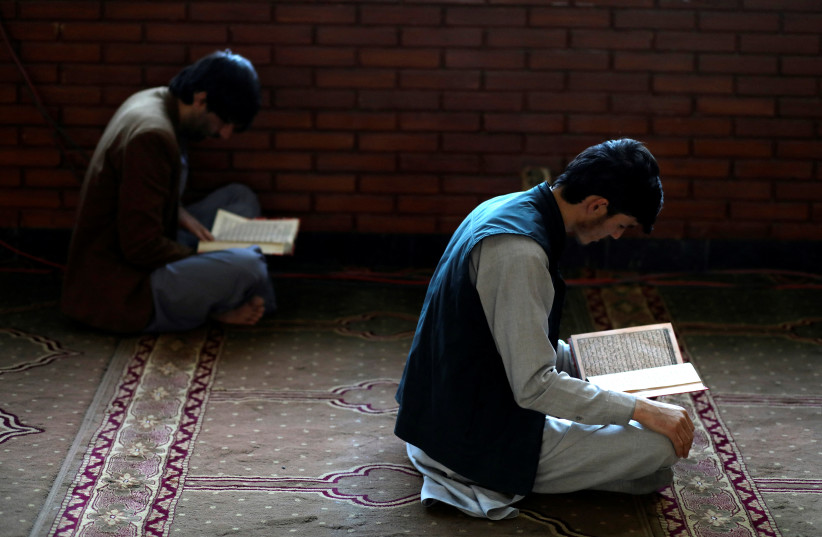What will happen to France’s Arabs and Muslims?
Al Arabiya, London, April 22
For more stories from The Media Line go to themedialine.org
The question of what would happen to France’s Muslims if Marine Le Pen wins the presidential elections has become more pressing in recent weeks, especially after the far-right candidate managed to soften her tone and close the gap with President Emmanuel Macron. However, once we take a deeper look at Le Pen’s political platform, it becomes clear that one of her first decisions after stepping into office would be to immediately deport all those Muslims residing in France who have not yet obtained permanent residency. Further, those who planned to relocate to France to find employment or are looking to do so now will face more difficulties than ever before. Similarly, the suffering of Muslim women will double as they will be prevented from wearing their hijabs in public, forcing them to pay a financial fine in the event of their noncompliance.
Although Macron’s government imposed restrictions on Muslims in some areas of life, these restrictions don’t even compare to what awaits Muslims in the event that Le Pen wins. It is expected that the tightening of restrictions on Arabs and Muslims will be part of a change in domestic policy beyond what Le Pen is capable of on foreign policy. For example, if she wanted France to leave the European Union, Le Pen would have to hold a referendum similar to the one that took place in Britain. This decision would be unlikely to pass a public vote. As for NATO, the most Le Pen can do is announce France’s unilateral withdrawal from the unified military command, as [president Charles] de Gaulle did. Everything else depends on the composition of the new parliament that will be elected in June or on resorting to referenda whose results are not guaranteed. Therefore, Le Pen’s primary focus is going to be domestic. And France’s Arab and Muslim communities will likely be the biggest victims. – Waheed Abd Al-Majeed

Why do they burn the Koran?!
Al-Ahram, Egypt, April 21
From time to time we hear of crazy incidents in which a protester takes to the street, typically in a European capital, and burns a copy of the Holy Koran in front of a crowd of spectators. I will never be able to understand such an act, even from someone who isn’t fully sane. There is no doubt that the Koranic text sparked great controversy, not only among those who believe in it but also among many intellectuals who were interested in understanding this miracle. Western thinkers spent years studying and analyzing the Koran, beginning with the German poet Johann Wolfgang von Goethe, the Irish playwright George Bernard Shaw and Russian writer Leo Tolstoy. All of them were fascinated by the Koranic text and its miraculousness.
I remember one day I entered into a long debate with one of the intellectuals who argued with me about the value of the Koranic texts. I told him that the Koran is a book that transcends all bounds of human creativity and that it simply cannot be compared to what humans have created throughout history. It is an exquisite piece of work in terms of its language, history, its teachings, its rules and laws, and the way it articulates the relationship between man and the Creator.
Unfortunately, there are many who deal with the Koranic text with superficiality that leads them to doubt its origin and thus miss all of the ingredients upon which true faith is based. Indeed, the Koran will remain the miracle of the Creator, glory be to Him, in text, spirit, and in creed. It will forever be a guide to all human beings. – Farouk Jweideh
<br>Laylat al-Qadr – The Night of Muslim Unity
Okaz, Saudi Arabia, April 21
Undoubtedly, the divisions that exist within the Muslim world aren’t new. They’ve been around for many years and are emblematic of other religions as well. However, Islam is a religion based on brotherhood. Islamic teachings and practices often revolve around the idea that all Muslims, regardless of creed, stream, or nationality, should come together as one. This is even reflected in the fifth pillar of Islam, the Hajj, which calls on Muslims to gather in Mecca and worship as one – regardless of their language, ethnicity or nationality.
The other occasion during which all Muslims become equal is Laylat al-Qadr: the night when the Koran was first sent down from heaven to the world. Therefore, whoever says that unity is impossible and difficult to achieve should remind themselves of how a single can bring together millions of worshipers from across the world to stand together as one.
Laylat al-Qadr, or the Night of Decree, is an occasion that unifies all Muslims around the world. It’s an opportunity to spread awareness of the Holy Koran and the fact that all Muslims should demonstrate peace, mercy and tolerance toward one another. It’s a night from which light, guidance and goodness glow. It is an event that symbolizes our common fate and the fact that every Muslim can repent for his sins, ask for forgiveness, and make supplications. – Muhammad Ali al-Hussaini
Translated by Asaf Zilberfarb.
